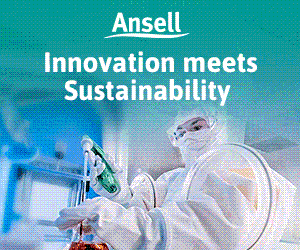Franz Ziel of Billerbeck, Germany, has long specialised in cleanroom production environments, especially the design of bespoke projects for the pharma and food industry. In the cleanroom, the use of well-designed, tightly sealed containment equipment can help to ensure a safe working environment. Good seals are essential, especially in isolator technology, so the German company works with Swiss provider of gastight butterfly valves, RICO Sicherheitstechnik.
Sterile test isolators are part of the company’s product range. These containment solutions are used for aseptic and toxic processes – for example, during the weighing, filling, loading and unloading of freeze dryers, and other critical processes.
The isolator housing with its built-in glove ports provides a barrier between the user and the product. The integrated ventilation system with pressure control also increases the safety for users and products. The loading and unloading of materials and substances is made possible via ‘mouse holes’ or appropriate transfer systems.
The isolators have systems for the additional supply and removal of air, using HEPA filters that clean the air flow. The isolator interiors are sterilised via an integrated H2O2 gas supply system.
It is essential that gas is not released into the atmosphere, therefore RICO’s stainless steel gastight butterfly valves are installed both at the supply and extract guards. The RAPIDO butterfly valves can be delivered in different nominal sizes, depending on the volume flow. The valves control the air flow in the ventilation duct and seal the pipework so that it is 100% gas-tight and the valves are regulated using servomotors.
A check on the tightness of the butterfly valves must be feasible once installed. This can be achieved quickly via the valve’s PERFEKT-System, by means of a hand pump and a manometer.
All plant is pressure tested before commissioning and only if the test is successful can the process start. Any lack of seal would be immediately noticeable.




